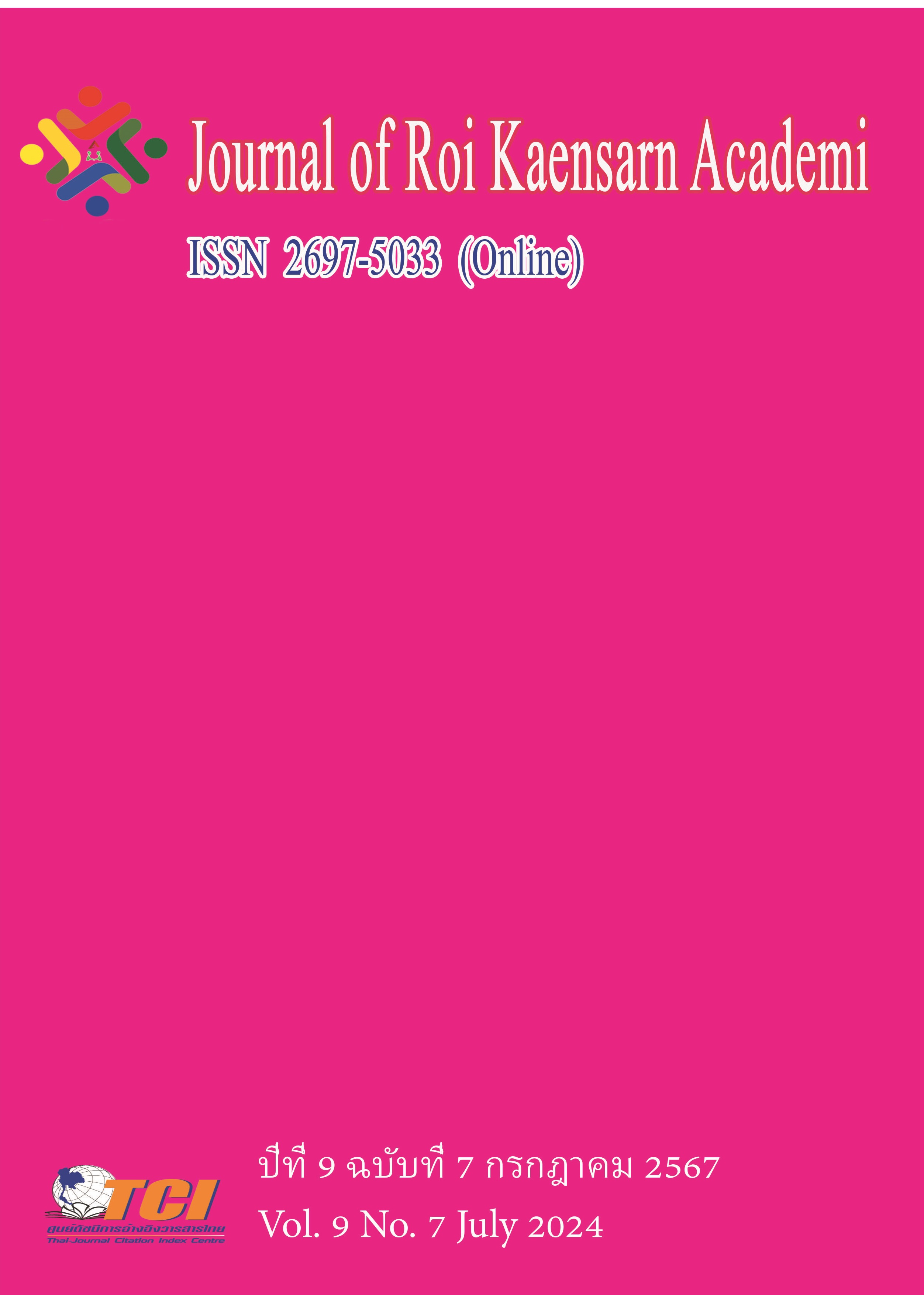ปัจจัยเชิงสาเหตุของคุณค่าแบรนด์ในมุมมองของผู้มีสิทธิเลือกตั้ง สมาชิกสภาผู้แทนราษฎร (ส.ส.) ในประเทศไทย
Main Article Content
บทคัดย่อ
การเลือกตั้งดังกล่าวทุกพรรคการเมืองได้ใช้กลยุทธ์ต่างๆในการ หาเสียงเพื่อทำการสื่อสารเสนอนโยบายทางการเมืองต่าง ๆ ซึ่งทุกพรรคการเมืองนั้นต้องแข่งขันกันและต้องสร้างแบรนด์พรรคการเมืองของตน ซึ่งการคัดเลือกบุคคลเพื่อมาเป็นแบรนด์พรรคการเมืองนั้นมีความสำคัญอย่างมากต่อภาพลักษณ์ของพรรคการเมือง เพื่อให้ประชาชนเข้าถึงและรู้จักมากขึ้น จึงมีความจําเป็นที่จะต้องได้รับการศึกษาปัจจัยเชิงสาเหตุของคุณค่าแบรนด์ในมุมมองของผู้มีสิทธิเลือกตั้งสมาชิกสภาผู้แทนราษฎร (ส.ส.) ในประเทศไทย เป็นการวิจัยแบบผสมผสานประชากรและกลุ่มตัวอย่าง คือ ผู้มีสิทธิเลือกตั้งสมาชิกสภาผู้แทนราษฎร (ส.ส.) จำนวน 560 ราย ทำการเก็บรวบรวมข้อมูลด้วยแบบสอบถามทางออนไลน์ และวิเคราะห์ข้อมูลโดยใช้เทคนิคการวิเคราะห์โมเดลสมการโครงสร้าง ( Structural Equation Modeling : SEM ) ผลการวิจัยพบว่าผู้ตอบแบบสอบถามส่วนใหญ่เป็นเพศหญิง อายุ Gen Y = 27 ปี – 43 ปี การศึกษาปริญญาตรี อาชีพพนักงานองค์กรเอกชน/ลูกจ้าง รายได้ต่อเดือนระหว่าง 15,000 – 30,000 บาท มีการอ่านรีวิว/ความคิดเห็นในเว็บไซต์หรือเครือข่ายสื่อสังคมออนไลน์อื่น ๆ ก่อนทำการเลือก (เช่น Facebook, Line, Pantip) ผลการทดสอบสมมติฐานพบว่า ส่วนประสมทางการตลาดการเมือง ธรรมาภิบาลของพรรคการเมือง คุณภาพการบริการของสมาชิกสภาผู้แทนราษฎร (ส.ส.) ส่งผลทางตรงเชิงบวกและส่งผลทางอ้อมเชิงบวกผ่านคุณค่าแบรนด์ในมุมมองของผู้มีสิทธิเลือกตั้งสมาชิกสภาผู้แทนราษฎร (ส.ส.) ต่อการตัดสินใจเลือกสมาชิกสภาผู้แทนราษฎร (ส.ส.)
Article Details
เอกสารอ้างอิง
กัลยา วานิชย์บัญชา. (2549). สถิติสำหรับงานวิจัย. (พิมพ์ครั้งที่ 2). สำนักงานพิมพ์จุฬาลงกรณ์มหาวิทยาลัย.
Ahuja, A., & Dabas, A. (2020). The role of branding in political marketing: An analysis of Donald Trump's presidential campaign. International Journal of Political Marketing, 19 (1), 54-70.
Baffour, S., & Andoh-Korsah, S. (2022). Analyzing the relationship between political branding and voter loyalty in developing countries: Evidence from Ghana. Journal of Public Affairs, 1, 2779.
Elsäßer, M., & Wirtz, B. W. (2017). Rational and emotional factors of customer satisfaction and brand loyalty in a business-to-business setting. Journal of Business & Industrial Marketing. doi:10.1108/jbim-05-2015-0101
Kim, S., Park, C., & O’Rourke, J. (2017). Effectives of Online Simulation Training: Measuring Faculty Knowledge, Perceptions, and Intention to Adopt. Nurse Education Today, 51, 102-107.
Kpundeh, S. J. (2012). The role of political parties in ensuring good governance in Africa. Journal of African Elections, 11 (2), 81-96.
Lee, M., Jeong, M., & Lee, J. (2017). Roles of negative emotions in customers’ perceived helpfulness of hotel reviews on a user-generated review website: A text mining approach. International Journal of Contemporary Hospitality Management, 29 (2), 762-783.
Lemmetyinen, A., Dimitrovski, D., Nieminen, L., & Pohjola, T. (2016). Cruise destination brand awareness as a moderator in motivation-satisfaction relation. Tourism Review, 71 (4), 245-258.
Momany, M., Alshboul, A. (2016). Social Media Marketing: Utilizing Social Media to Advance Brand Awareness and Increase Online Sales. International Journal of Business, Marketing, & Decision Science, 9 (1), 33-54.
Mukherjee, I. (2016). Political parties and good governance in India. Journal of Asian and African Studies, 51 (6), 721-736.
Reynolds, Andrew, Ben Reilly, and Andrew Ellis. (2005). Electoral System Design: The New International Idea Handbook. Stockholm: International IDEA
Smith, J. (2020). Good governance of political parties in democratic societies. Journal of Political Science, 15 (2), 45-62.

